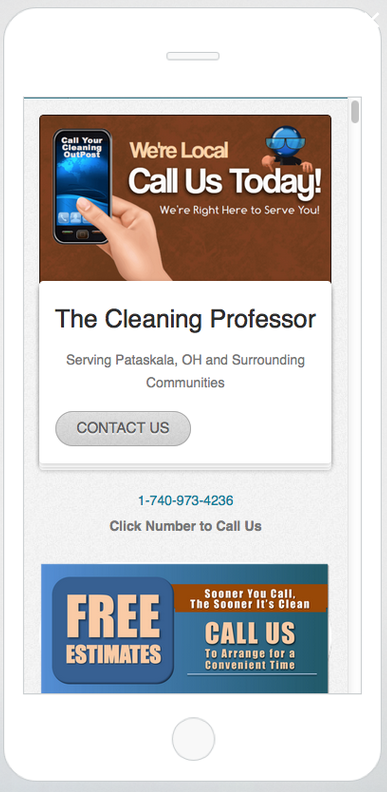
by Larry Galler
So there you are, at a business event with a pack of business cards in your pocket, balancing a plate of cheese, spicy meatballs and celery sticks in one hand with a beverage in the other.
People are milling around or clustered in small groups.
Someone you've never seen before comes up to you, introduces himself, sticks out his hand to shake yours, and … what do you do? What do you say?
At this point, some people are mentally trying to find a hole to crawl into, while others are well-prepared and eager to shake hands with this person — if they can figure out how to get their drink and plate in just one hand and engage him in conversation.
It's your moment to shine, to impress, to learn and to perhaps find a new prospect for your business.
Networking … it works
This is "networking," one of the most effective, least expensive marketing methods ever devised.
Networking events are hosted by most Chambers of Commerce, trade groups and organizations created to assemble people to meet and learn about each other''s businesses. Business Network International (BNI), LeTip, and Leads Club are examples of national groups, and there are many regional and local organizations.
While a few people are seemingly born to be "natural" networkers, most of us stumble and struggle through these events.
But, you really don't have to stumble and struggle. Networking can be fun and profitable if you learn a few things about it and practice a little.
One way to be a successful networker is to treat it as a game or a sport and, like any game or sport, you must know the rules to win:
Rule 1
Have a short, well-practiced, engaging, benefit-laden and curiosity-creating introductory phrase ready to deliver.
Within a couple of moments, one of you will ask the other, "So, what do you do for a living?" If you are stuck for an answer, you lose. You might as well just take your business cards and go home because you haven''t done your homework. You aren't prepared.
Rule 2
Whatever you say that describes your business, it must have a benefit associated with it.
If you say "I clean carpet," the networking referee will blow a whistle to give you a penalty.
Look, all carpet cleaners clean carpet … what makes your company special? Why should the person you are talking to use you?
Rule 3
This conversation is not only about you! Networking is a "give and take" activity.
It takes both of you to communicate to see if either of you has something the other one wants or needs, so ask questions and give the other person the opportunity to talk.
They might have products and services you need to buy. I have met a number of excellent vendors at networking events, including my financial planner, accountant and handyman. Some have also become my clients and referral agents.
Rule 4
Don't expect to make a sale now.
Expect to start a relationship that may develop into a sale in the future. Some of these relationships can go on for years before they have need of your services.
Rule 5
Have a system in place to follow up with your prospects — immediately.
The person you are talking to will meet a number of other people at the event you are attending. It is very easy for some of them to forget you and, when they go through the business cards they have collected, it's very possible your business card ends up in the trash.
If you want to build that relationship, it is up to you to make each person remember you and what you can do for them. Just giving out business cards isn't enough.
Rule 6
Follow up continuously.
The people you meet may not need your services for a long time. In our busy, multi-tasking world, most people will not remember you unless you continually remind them.
You can send e-mails, postcards, letters, contact them with telephone calls, etc. — anything to keep reminding them that, when they need or want your service, they should call on you.
Make it successful
That's it, six rules for successful networking. Please realize that almost every person you meet has a need for your services.
Most of them can afford your services and they will use the people they know and trust to give them quality craftsmanship, excellent service and full value.
The more people you know — more importantly, the more people who know you — the more people you will have for customers and referral agents.
The logic is simple but, like most things, the implementation and execution are difficult.
Larry Galler specializes in coaching owners of small businesses to grow their businesses through effective marketing, customer retention programs, and systemizing their business practices. Explore how he can help you during a free coaching session by calling 219-464-9463 or email [email protected]. Visit his website at www.LarryGaller.com
So there you are, at a business event with a pack of business cards in your pocket, balancing a plate of cheese, spicy meatballs and celery sticks in one hand with a beverage in the other.
People are milling around or clustered in small groups.
Someone you've never seen before comes up to you, introduces himself, sticks out his hand to shake yours, and … what do you do? What do you say?
At this point, some people are mentally trying to find a hole to crawl into, while others are well-prepared and eager to shake hands with this person — if they can figure out how to get their drink and plate in just one hand and engage him in conversation.
It's your moment to shine, to impress, to learn and to perhaps find a new prospect for your business.
Networking … it works
This is "networking," one of the most effective, least expensive marketing methods ever devised.
Networking events are hosted by most Chambers of Commerce, trade groups and organizations created to assemble people to meet and learn about each other''s businesses. Business Network International (BNI), LeTip, and Leads Club are examples of national groups, and there are many regional and local organizations.
While a few people are seemingly born to be "natural" networkers, most of us stumble and struggle through these events.
But, you really don't have to stumble and struggle. Networking can be fun and profitable if you learn a few things about it and practice a little.
One way to be a successful networker is to treat it as a game or a sport and, like any game or sport, you must know the rules to win:
Rule 1
Have a short, well-practiced, engaging, benefit-laden and curiosity-creating introductory phrase ready to deliver.
Within a couple of moments, one of you will ask the other, "So, what do you do for a living?" If you are stuck for an answer, you lose. You might as well just take your business cards and go home because you haven''t done your homework. You aren't prepared.
Rule 2
Whatever you say that describes your business, it must have a benefit associated with it.
If you say "I clean carpet," the networking referee will blow a whistle to give you a penalty.
Look, all carpet cleaners clean carpet … what makes your company special? Why should the person you are talking to use you?
Rule 3
This conversation is not only about you! Networking is a "give and take" activity.
It takes both of you to communicate to see if either of you has something the other one wants or needs, so ask questions and give the other person the opportunity to talk.
They might have products and services you need to buy. I have met a number of excellent vendors at networking events, including my financial planner, accountant and handyman. Some have also become my clients and referral agents.
Rule 4
Don't expect to make a sale now.
Expect to start a relationship that may develop into a sale in the future. Some of these relationships can go on for years before they have need of your services.
Rule 5
Have a system in place to follow up with your prospects — immediately.
The person you are talking to will meet a number of other people at the event you are attending. It is very easy for some of them to forget you and, when they go through the business cards they have collected, it's very possible your business card ends up in the trash.
If you want to build that relationship, it is up to you to make each person remember you and what you can do for them. Just giving out business cards isn't enough.
Rule 6
Follow up continuously.
The people you meet may not need your services for a long time. In our busy, multi-tasking world, most people will not remember you unless you continually remind them.
You can send e-mails, postcards, letters, contact them with telephone calls, etc. — anything to keep reminding them that, when they need or want your service, they should call on you.
Make it successful
That's it, six rules for successful networking. Please realize that almost every person you meet has a need for your services.
Most of them can afford your services and they will use the people they know and trust to give them quality craftsmanship, excellent service and full value.
The more people you know — more importantly, the more people who know you — the more people you will have for customers and referral agents.
The logic is simple but, like most things, the implementation and execution are difficult.
Larry Galler specializes in coaching owners of small businesses to grow their businesses through effective marketing, customer retention programs, and systemizing their business practices. Explore how he can help you during a free coaching session by calling 219-464-9463 or email [email protected]. Visit his website at www.LarryGaller.com




